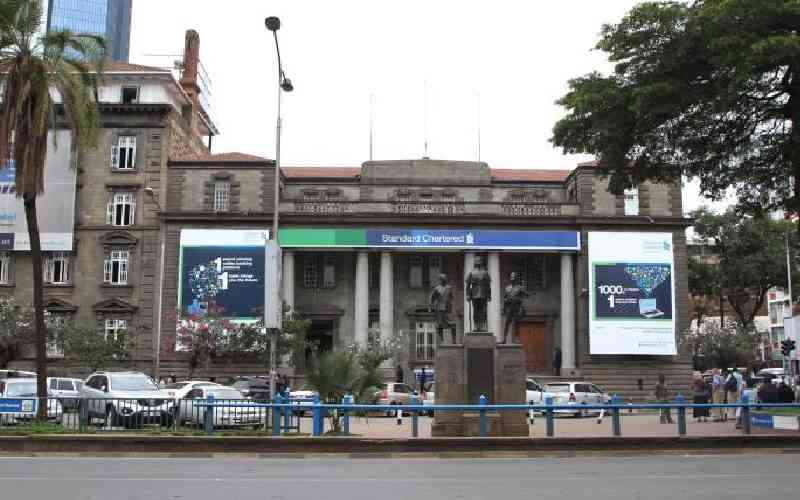×
The Standard e-Paper
Home To Bold Columnists

Standard Chartered Bank branch along Kenyatta Avenue in Nairobi. [File, Standard]
The High Court in Nairobi has thrown out a case filed by Standard Chartered Bank challenging the Retirement Benefits Tribunal's order that required the lender to pay pensioners Sh30 billion.